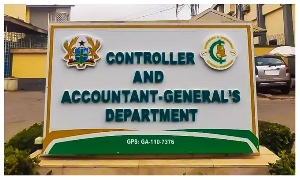The world over, the beneficial role that education plays in individual opportunity and economic development is unmistakable. While basic education is essential, it is only the first step. Secondary education is a vital stepping stone to much more than can be achieved by merely basic education.
In the course of secondary education, a student will enter as a juvenile and leave as a young adult who will have benefited from a higher level of knowledge acquisition and intellectual sophistication than simply basic education is able to offer.
Thus, secondary education has played a key role in providing countries with a significant human capital boost which merely basic education is not able to provide, and which has contributed considerably to bringing large segments of the population of out of poverty in initially poor countries. For example, several studies have shown that secondary education played a pivotal role in the “miraculous” economic growth of East Asian countries.
Indeed, over the last few decades, the importance of secondary education has changed fundamentally. In many developed countries the concern for youth unemployment led to the expansion of the provision of secondary education for the purpose of keeping teenagers in school for as long as possible while strengthening their knowledge and skills. Today, having a high proportion of the population that have received secondary education is now generally recognised as vital for meeting the challenges of the twenty-first century.
It is therefore unacceptable that many studies have shown that the vast majority of young people in Africa do not have access to secondary education and in most African countries secondary education systems have remained virtually unchanged over the past 20 to 30 years. What is more, statistics have indicated that the gap between enrolment at secondary school in sub-Saharan Africa and other developing regions is widening.
In the case of Ghana, a subsection of UNESCO's 2012 Education for All Global Monitoring Report which compares Ghana to the Republic of Korea points out that “although Ghana had a similar starting point to the Republic of Korea in the early 1970s, it has lagged far behind since then. The Republic of Korea began to expand its secondary system rapidly in the 1970s, but in Ghana the secondary education gross enrolment ratio stagnated at around 40% for another thirty years”.
Undoubtedly, primary education provides the foundation for further education, and indeed the realization of primary education for every single child has remained the focus of attention concerning education for most of sub-Saharan Africa. But it is detrimental when for so very long a time provisions for further education are neglected because for so very long a time the realization of primary education for every single child has not yet been attained.
It is perhaps instructive that the outcomes presented at regional conferences of the World Bank’s Secondary Education in Africa study (2002-2005) acknowledged that while Universal Primary Education (UPE) ought to remain a priority, it is simply not sufficient to respond to the need for economic and social growth in Africa.
Again, in a report by the South African Institute of International Affairs entitled “Back to the Blackboard: Looking beyond Universal Primary Education in Africa” (2004), which looks beyond governments' attempts to provide UPE to the need to expand the secondary education sector, Peroshni Govender made the observation that most African governments have pledged to meet the United Nations Millennium Development Goals, which include providing UPE by 2015, but though the idea is hard to argue with on paper there is growing evidence that such a narrow aim is having adverse consequences for broader education needs.
Attention was drawn to the fact that at the current slow pace of enrolment growth of primary education in Africa, it could take the continent very many more years to achieve the Millennium Development Goal of UPE due by 2015; yet if African countries are to cope with the global pace of development, they also have to pay attention to improving the secondary education sector.
Attention was also drawn to the observation that many African countries are embracing UPE without preparation and foresight, and unfortunately the emphasis on UPE has contributed to the gross neglect of secondary education. The following rhetorical question was therefore posed: What will become of the millions of primary school graduates in 2016 if we do not plan for their secondary schooling, and what value will they add to development in their countries?
Uganda was sighted as a typical example where in the face of a dedicated UPE programme which has been in existence for a number of years, less than half the 700,000 children who successfully completed primary school in 2003 were accommodated in secondary school.
Ghana has had similar challenges with secondary education, but considerable progress has been made with regard to basic education. Even though the ultimate objective of achieving basic education for every single child has not yet been attained, a lot has been done over the past decades to make basic education considerably widespread even as the population has exponentially increased since independence and still keeps on rapidly increasing.
But as more and more children complete basic education, the need to provide further schooling also becomes more and more apparent.
And the reality that we are confronted with in this new era in which we live is that basic education is simply no longer enough.
Secondary education is now considered a prerequisite both for successful integration of young people into the modern economy and for the ability of countries to compete successfully in the new globalized, knowledge-based economy.
The rapid pace of change in industry, business and all aspects of our lives in today’s hi-tech world has heightened competition for better qualified and more knowledgeable people in the workplace.
And indeed, we now live in an intensely knowledge-driven era in which knowledge is supplanting land, labour, and financial capital as a source of competitive advantage.
For these very pressing reasons, rather than a gradualist approach, NOW, MORE THAN EVER, URGENT ACCELERATED EFFORTS NEED TO BE MADE CONCERNING THE ADVANCEMENT OF OUR HUMAN RESOURCE BASE.
It is therefore coherent that in addition to the longstanding commitment of striving to fully achieve basic education for all, an urgent focus on the next stage of advancing education provision in Ghana has become a major political issue, i.e., the mass provision of secondary education.
Some though, argue that despite the fact that the absolute realization of basic education for every single child has been a shifting target over the decades, the focus must still remain on arriving at its absolute fulfilment before any major effort to advance the provision of education beyond the basic stage can begin.
But proponents argue that at least a lot has been done over the decades to make basic education considerably widespread, but the worrying tide of several thousands of helpless and vulnerable juveniles who complete basic education each year but are unable to gain access to secondary education ought not be ignored; therefore, while we carry on furthering the significant progress that has been made with regard to basic education, we need to now also increase our focus on secondary education so that the already distressingly large numbers of the aforementioned vulnerable juveniles do not swell even more.
Another matter worth consideration is the argument that in order for any nation to have the capacity for sustainable, strong economic development in today’s highly competitive globalised economy, a critical mass of human resources with knowledge and skills higher than the basic level needs to be obtained for its workforce. Hence, it is of the essence that concerted efforts are made to greatly expand the provision of education further than merely the basic stage for the purpose of churning out an ample amount of well-educated people so as to secure the attainment of the critical mass that is needed for the progress and sustained wellbeing of the nation.
A case in point which may help to elucidate this argument is the matter of concern that unfortunately Ghana’s current doctor to patient ratio is far below the recommended standard of the World Health Organization. As a consequence, Ghana experiences quite problematic high-pressure challenges in meeting the medical and health needs of the populace. The handful of medical doctors produced annually is also inadequate due to the limited capacity of our medical schools. For this reason it is regarded as vital that funds be urgently invested in increasing the capacity of our medical schools to produce doctors in order to obtain the critical mass (minimum requirement) of doctors that is necessary for the welfare of the nation.
On the other hand, the opportunity cost of urgently allocating funds for training more people to become doctors can be considered to be additional investment in further improving basic education. But then again, if we set aside the aforementioned national healthcare exigency in preference for further improving basic education, there will continue to be an inadequate amount doctors in the nation to cater for even the very children who will be receiving basic education when they fall ill in the near future.
Unfortunately, because of scarce resources, all governments have to look carefully at their options and make difficult, but necessary compromises and trade-offs in dealing with such dilemmas.
But comparable to the abovementioned scenario, it can be argued that in the case of a developing country such as Ghana in this highly competitive and technological age of which more well-educated and highly skilled individuals are in the labour market than ever before, now more than ever before, there is a greater need for accelerated efforts and investments in amassing an ample amount of people educated further than merely the basic stage so as to secure the attainment of the critical mass that is needed for the advancement and sustained wellbeing of the nation.
Also, very interestingly, according to studies conducted by UNESCO, a critical mass of secondary participation is needed by developing countries even in the effort to achieve UPE.
It was found that increasing the provision and coverage of secondary education can boost completion rates in primary education, because if a student has a realistic opportunity to continue schooling at secondary school it can increase motivation (and the family’s perceived incentives) for graduation from primary school.
In the specific case of Ghana, a study conducted in 1996 (“School Supply Constraints and Children's Educational Outcomes in Rural Ghana”, Victor Lavy) found that improving access to secondary education facilities not only improved enrolment at the secondary level, but also served as an incentive for primary school completion.
However, aside from the abovementioned compelling critical mass arguments concerning the prudency of an immediate prioritization of the mass provision of secondary education, it is also important to bear in mind the fact that the vast majority of those who freshly graduate from secondary school have reached the adult age of 18 and therefore are much more capable of fending for themselves right out of school than vulnerable juvenile basic school graduates.
What is more, secondary school graduates have the special advantage of the convenient option to engage themselves in working and saving money for a number of years before pursuing higher education much later on in their life, even as mature students.
Unfortunately those who are not able to gain the opportunity to go to secondary school will never have the chance to pursue higher education in the future; especially since in most cases, once a certain window of time has passed after which basic education graduates will have reached adulthood, it would be considered too late to go back and pursue schooling at the secondary level.
Thus, as education is the surest way for every child to reach his or her full potential and achieve his or her deeply held hopes and aspirations, if this generation of children are denied of learning opportunities beyond basic education, they may never have the chance to reach their full potential.
For these and the other aforementioned reasons, many advocate that countries should be committed to the goal of mass secondary education as a minimum in terms of policy and provision.
Furthermore, secondary education that incorporates technical and vocational skills training which is relevant to the present needs of the labour market is vital for preparing students for immediate entry into the labour market and giving countries the skilled workforce they need to compete in today’s world.
Thus in light of all of the above, a new, bolder approach of accelerating the expansion of secondary education as well as basic education is needed since the role that secondary education plays is key, as it provides important advantages and opens promising alternative pathways for young people’s life futures that merely basic education is not able to offer.
As a final point, it will be profitable if a wider range of subjects, such as entrepreneurship, personal development and global studies, are included as core subjects in Ghana’s Senior Secondary School curriculum to provide broader general knowledge foundations, designed to produce well-rounded individuals that are equipped for life in this in this highly competitive new era of intellectual capital as a strategic resource, knowledge-driven economies and globalization.
By Silas Sarfo
Opinions of Tuesday, 4 December 2012
Columnist: Sarfo, Silas














